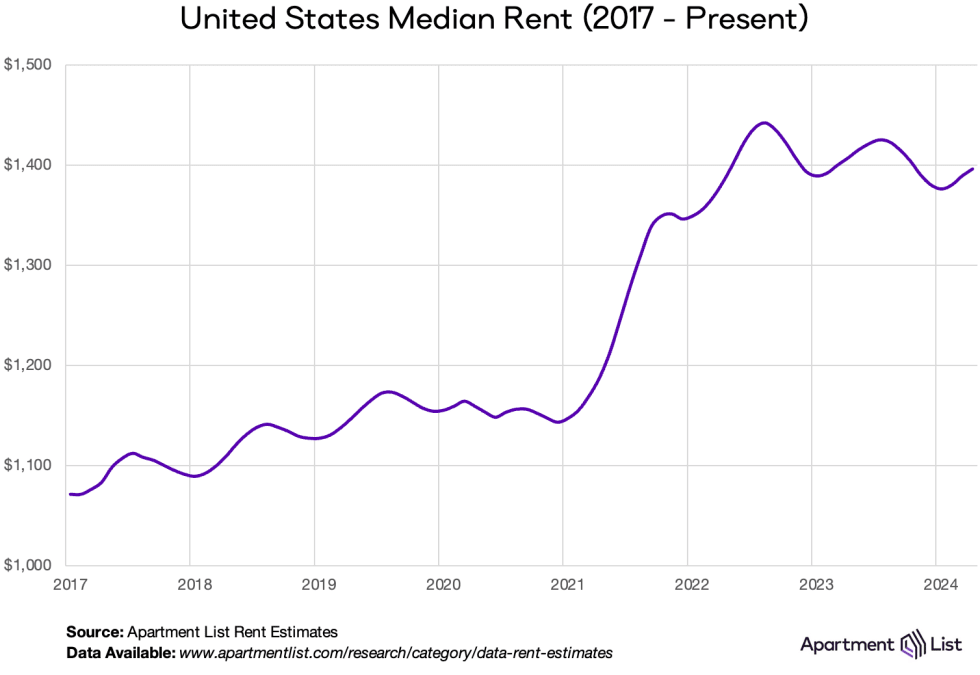South Bank at Quarry Trails
- 91 units available
- Studio • 1 bed • 2 bed • 3 bed
- Amenities
In unit laundry, Patio / balcony, Granite counters, Pet friendly, Stainless steel, Walk in closets + more

To answer your burning question — yes, landlords can increase your rent. Rent increases are common, so expect to experience one at least once during your illustrious rental career.
Sometimes landlords experience higher costs and raise rent to help cover them. In other cases, the rental market may experience a boom and heat up enough to justify rent raises. Regardless of why rent increases happen, the most critical question is: “What are you going to do about it?”
Many renters don’t have a rent increase strategy in place the first time they encounter one, so we’re here to help.
Here’s everything you need to know about rent increases, from how to avoid them to what to do if you receive an increase notice. Let’s get started!
A rent increase is exactly what it sounds like: your landlord will increase your rent rate from the amount you currently pay. Typically, rent increases occur during the lease renewal period, such as when a landlord or property manager may offer lease renewal as an option, but only if you agree to pay a higher rent rate.
In some cases, a rent increase can be imposed during your current lease agreement, provided there aren’t any legal restrictions on the act, and there’s a clause to allow it in your lease agreement.
That said, many major cities (and even some smaller localities) have established laws that help to reduce the burden rent increases can have on renters.
When you face a rent increase, take the time to research local laws to ensure that the hike is legal.

The cause of rent increases is nuanced. Rent prices are impacted by factors like inflation, the availability of housing in an area, the cost of living in that area, and more. On a macro-level, rent increases are usually a decision made by a landlord or property manager because they need to increase funding for maintenance or improvements on the property. However, they are also a reflection of broader economic trends. Prior to the pandemic, rents across the country saw large increases in the years leading up to it, and then large decreases in the past few years as the pandemic came to a close.
Check out our National Rent Data Report for a more in-depth look at national rent trends. Now without further ado, here are our top six tips for fighting rent increases:
As we said before, whether your rent increases will largely be determined by fair market value for your apartment. That means that you need to know whether you're being over (or under-) charged for your area. You can use online tools to research your neighborhood and find out what the going rate for an apartment is there. Make sure you pay attention to features like amenities and location because that can impact prices.
However, if after you do some research, you determine that your apartment is overpriced for your area, then try this:
Check out our guide on negotiating rent for even more tips about how to handle these landlord discussions.

Landlords value long-term tenants, especially those with an impeccable history that includes on-time rent payments and no record of lease-breaking issues.
If you keep your head down and avoid any issues as a tenant, you might incentivize your landlord to keep you as a tenant.
That said, don’t be afraid to raise issues with your landlord just to avoid rent increases.
Being an ideal tenant just means adhering to your lease agreement, not letting everything slide. For example, if your A/C isn’t working mid-summer, that’s not something to keep to yourself!
When you are negotiating lease renewal, ask for a longer lease term.
This may seem obvious, but if you love the place you live — stay a while!
Being a long-term tenant can make some landlords less inclined to raise your rent because you represent a steady income stream and may be considered a low-risk tenant.
There’s also a solid financial incentive that comes with asking for a longer lease. You can avoid moving costs which can deliver a brutal blow to even the most well-planned budgets.
Additionally, as rent is generally raised during the lease renewal period, a longer lease length gives you more time until the next renewal.
Although you may have always dreamed of owning a fluffy or furry friend, you may have to wait until your living arrangements change.
Renting with a pet creates liability issues, damage concerns, and other issues that most landlords would prefer not to deal with.
Getting a pet may result in a raised rent in the form of pet rent, or your landlord may be less inclined to continue renting at a reduced rate when you have a pet.
On the positive side, you can use the money you save on rent without a pet to start an adoption fund for your future four-legged friend!
The bulk of the work in avoiding rent increases comes from being proactive. That means choosing a city with laws that help protect renters from excessive rent hikes by limiting the amount that rent can increase by and/or requiring sufficient notice.
Many cities in California have enacted rent control regulations that limit the amount a landlord can raise rent each year. San Francisco has one of the most well-known rent control laws in the nation.
Additionally, New York City limits rent increases for rent-stabilized and rent-regulated buildings but does not prevent them. If you are searching for a new apartment in the city, check out buildings that fall under these regulations.
Just be aware that it may be challenging to land a rent-regulated or rent-stabilized apartment in New York, as they are in high demand!
Sometimes a little neighborly love can go a long way.
Odds are, if you receive a rent increase letter, other tenants in your building or community should expect to receive the same once their leases are up. Although it’s a bit cliche, you’re stronger together than you are alone.
If you and your fellow tenants present a united front against a rent increase, you may be able to negotiate rent at a reduced rate or hold it off for another year.

Receiving a rent increase letter is understandably a stressful experience, but it can also be a little confusing. Most renters don’t know what to do when they receive a rent increase letter.
Fortunately, we’re here to help. Here’s a step-by-step explanation of what to do if you receive a rent increase letter.
First and foremost, stay calm! Yes, it can be alarming to receive a rent increase letter (especially if it’s a huge jump!), but panicking makes it hard to think clearly.
Take a breath or two. Vent to a friend or family member if necessary. Once you’ve got your emotions in check, it’s time to get down to business!
Legally, certain regulations dictate when a landlord can increase your rent. These regulations are usually dictated by your location and lease term length. For example, longer leases usually require extended notice periods, while shorter leases require shorter or no notice periods.
Knowing whether your landlord has violated these regulations can give you a strong leg to stand on if you choose to fight the increase.
That said, if your landlord has violated the rent increase regulations in your area, you’ll need to speak with your local housing authority to figure out what your next steps should be.
Most likely, your landlord may be required to reissue their notice to adhere to regulations.
If the increase notice was issued legally, you can move on to the next step.
Yes, you’ll need to have a hard conversation with your landlord. It may not be the highlight of your day, but it’s important. Of course, if it’s not possible to meet in person, you can simply send a response letter to lower your rent.
If you are concerned about the increase and your ability to pay it, your landlord may be willing to hear you out and come up with a compromise.
On the other end of the spectrum, you may find your landlord is unwilling to hear you out as you attempt to negotiate.
It’s important to meet with your landlord to discuss things soon after receiving the notice. Regardless of the conversation's outcome, you’ll have all the information you need to determine your next steps.

Rent increases will take a toll on your wallet, even if you’re well-versed when it comes to knowing how to negotiate rent.
Whether you choose to pay a higher monthly rent or try your luck in the rental market, it’s essential to prepare for the change financially.
Fortunately, landlords are required to provide due notice of rent increases in many locales. In addition, some of the stricter rent increase notice regulations require landlords to inform tenants up to 90 days before the increase’s enactment.
Update your budget as soon as possible after receiving the notice!
Use the remaining time between the notice and when the increase goes into effect to build a cushion that will support a move or reduce the financial blow caused by the increase.
Just be sure to do your due diligence to learn the market rent in your neighborhood. Figuring out how to build an accurate budget is important.
Rent increases may be the bane of your renting existence, but they are pretty common. You either accept the increase and pay the higher rate or go down fighting. However you choose to handle a rent increase situation, it’s important to be realistic about the status of your living situation.
If the increase is too high or you simply prefer to find accommodation elsewhere — we can help!
Just let us know everything you’re looking for in your next apartment (low rent rate included!), and we’ll get you matched with your dream home! Take the quiz today!


In unit laundry, Patio / balcony, Granite counters, Pet friendly, Stainless steel, Walk in closets + more
In unit laundry, Hardwood floors, Dishwasher, 24hr maintenance, Stainless steel, Walk in closets + more